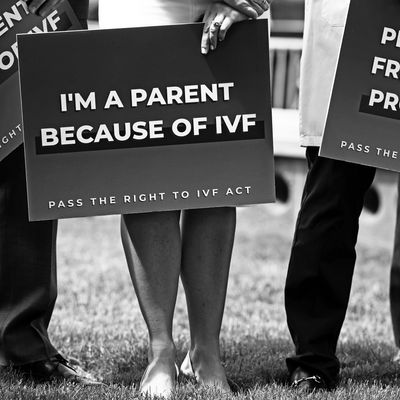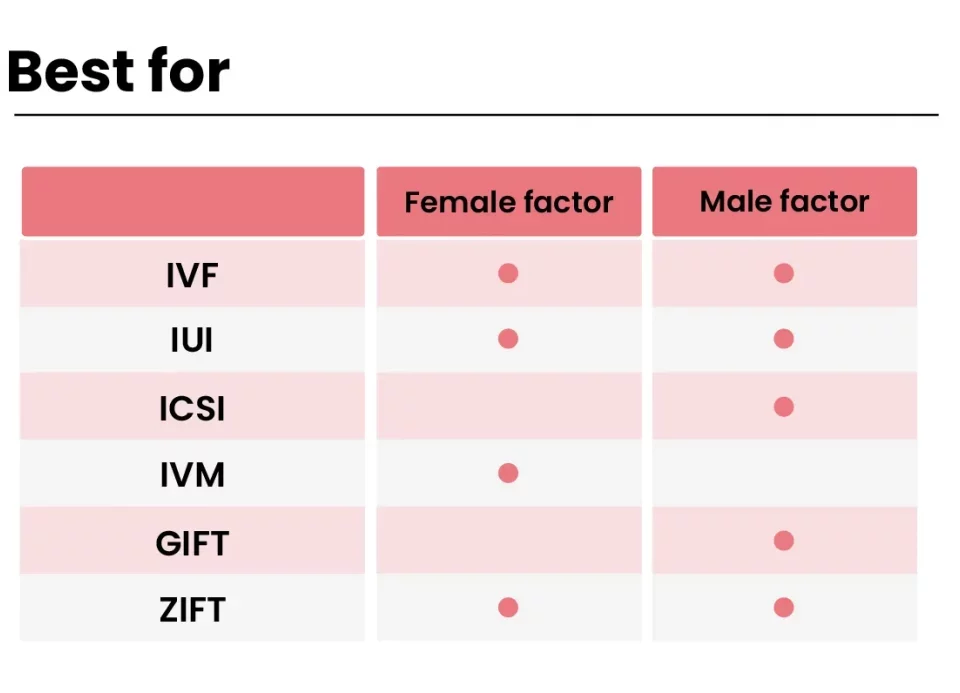
Can IVF Cause Cancer? What You Need to Know Before Starting Your Journey
April 5, 2025
What Does IVF Stand For? Your Complete Guide to Understanding In Vitro Fertilization
April 5, 2025Why Are Republicans Against IVF? Exploring the Debate

Why Are Republicans Against IVF? Exploring the Debate
In recent years, in vitro fertilization (IVF) has become a hot topic in American politics, especially among Republicans. You might have heard about lawmakers debating it, seen headlines about court rulings, or even caught snippets of the conversation on social media. IVF—a medical procedure that helps people have babies when they can’t conceive naturally—seems like something everyone would support, right? After all, it’s about building families. But the reality is more complicated. Some Republicans have raised concerns about IVF, and their stance has sparked confusion, frustration, and plenty of questions.
So, what’s going on? Why would a party often tied to “family values” seem hesitant about a tool that helps people become parents? Let’s dive into the reasons, the emotions, and the bigger picture behind this debate. Along the way, we’ll unpack the ethical dilemmas, political moves, and real-life impacts—plus a few angles you might not have considered before.
The Roots of Republican Hesitation
At first glance, it’s hard to imagine why anyone would oppose IVF. It’s a lifeline for couples struggling with infertility, and about 1 in 6 adults in the U.S. face that challenge, according to the CDC. But for some Republicans, the issue isn’t about denying families—it’s about what happens during the process.
IVF involves fertilizing eggs with sperm in a lab to create embryos. Doctors then implant one or two into the womb, hoping for a pregnancy. Here’s where things get tricky: not all embryos are used. Some are frozen for later, others are donated to research, and some are discarded if they’re not viable. For Republicans who believe life begins at conception, those unused embryos aren’t just cells—they’re potential human beings.
This belief isn’t new. It’s tied to the “pro-life” stance that’s been a cornerstone of Republican identity for decades. If an embryo is a person, then discarding it could be seen as ending a life. That’s the starting point for a lot of the pushback. But it’s not the whole story—there’s more beneath the surface driving this divide.
The Alabama Ruling That Shook Things Up
In February 2024, the Alabama Supreme Court dropped a bombshell: it ruled that frozen embryos created through IVF are legally “children” under state law. This came after a lawsuit involving a couple whose embryos were accidentally destroyed at a clinic. The decision sent shockwaves through the fertility world—clinics paused IVF services, unsure if they’d face legal risks for handling embryos.
Republicans scrambled to respond. Many, like former President Donald Trump, quickly said they supported IVF and urged Alabama lawmakers to protect it. The state legislature passed a fix within weeks, shielding clinics from lawsuits. But the ruling exposed a fault line. Some GOP lawmakers had backed “personhood” laws—bills saying life begins at fertilization—without carving out exceptions for IVF. Suddenly, those laws clashed with the reality of how IVF works.
For example, the Life at Conception Act, co-sponsored by 125 House Republicans, defines a human being as existing “at all stages of life, including the moment of fertilization.” No mention of IVF there. Critics argue this could ban the procedure outright by making it illegal to discard embryos. Supporters say it’s not about banning IVF—it’s about protecting life. Either way, the Alabama case made it clear: abstract beliefs were now hitting real families hard.
Ethical Concerns Beyond the Headlines
The embryo question is big, but it’s not the only ethical worry some Republicans have about IVF. Dig a little deeper, and you’ll find debates that don’t always make the news.
One concern is the sheer number of embryos created. A typical IVF cycle might produce 5-10 embryos, but only a couple are implanted. What happens to the rest? Freezing them costs money—about $1,000 a year—and not everyone can afford that long-term. Some couples abandon their embryos, leaving clinics with tough choices. In 2023, the American Society for Reproductive Medicine estimated over 1 million embryos are in storage across the U.S. That’s a logistical and moral puzzle: who’s responsible for them?
Then there’s preimplantation genetic testing (PGT). This lets parents screen embryos for diseases like cystic fibrosis—or even pick traits like eye color in some cases. To some Republicans, especially religious conservatives, this feels like “playing God” or stepping into eugenics territory. The Southern Baptist Convention, a major conservative voice, voted in 2024 to oppose IVF partly for this reason, urging couples to adopt instead.
These worries aren’t universal among Republicans—many support IVF despite them—but they fuel a vocal minority pushing for restrictions. It’s less about banning IVF outright and more about reining in parts of the process that clash with their values.
Quick Quiz: Where Do You Stand?
Think about this for a sec:
- Should parents be able to choose an embryo’s traits, like gender or health?
- What should happen to unused embryos—freeze forever, donate, or discard?
- Does life begin at conception, or later?
No right or wrong here—just a way to see how your views line up with the debate! Share your thoughts with a friend or jot them down.
Political Moves and Mixed Messages
Here’s where it gets messy: Republicans aren’t all on the same page. In 2024, Senate Democrats pushed the Right to IVF Act, a bill to protect IVF access nationwide. It failed twice—once in June, again in September—blocked by most GOP senators. They called it a “political stunt” and said they already support IVF, just not this version of the bill.
Instead, Senators Katie Britt and Ted Cruz offered their own plan: cut Medicaid funding to states that ban IVF. Democrats shot it down, saying it had loopholes and didn’t go far enough. Meanwhile, Trump jumped in during his 2024 campaign, promising to make IVF free via government or insurance funding. That threw some conservatives off—small-government fans hated the cost, while anti-IVF groups felt betrayed.
This flip-flopping frustrates voters. Posts on X show people asking: “If Republicans love families, why block IVF bills?” Others defend the party, saying it’s about principle, not opposition. The mixed signals reflect a party wrestling with its identity—pro-life roots versus pro-family goals—and it’s leaving families caught in the crossfire.
The Real-Life Impact on Families
Let’s zoom out from politics and look at who’s affected. Imagine you’re a couple in Alabama, mid-IVF cycle, when clinics shut down after the 2024 ruling. Your dreams of a baby are on hold—maybe for good. Or picture a single mom in Texas, saving $15,000 for one IVF round, only to hear lawmakers might restrict it.
Infertility is already a rollercoaster. IVF costs $12,000-$25,000 per cycle, and most insurance doesn’t cover it. Only 19 states mandate some coverage, per Resolve: The National Infertility Association. Add legal uncertainty, and it’s a gut punch. A 2024 study from the Journal of Assisted Reproduction found 1 in 4 IVF patients felt “hopeless” after the Alabama ruling, fearing more limits.
Republicans say they’re not against families—just the ethics. But for those waiting on a pregnancy test, that distinction feels academic. The debate isn’t just about principles; it’s about real people’s lives.
What Can You Do If You’re Facing IVF Uncertainty?
If you’re navigating this mess, here’s a game plan:
✔️ Research state laws: Check if your state protects IVF or has “personhood” bills pending.
✔️ Talk to your clinic: Ask how they’re handling embryo storage or legal risks.
✔️ Save smart: Look into fertility grants—groups like Baby Quest offer up to $15,000.
❌ Don’t panic: Laws are shifting, but IVF isn’t banned yet—stay informed, not frozen.
The Role of Religion in the Resistance
Religion plays a huge part in this story, and it’s often overlooked. Many Republicans lean evangelical Christian, and groups like the Southern Baptist Convention shape their views. In June 2024, the SBC formally opposed IVF, citing the “destruction” of embryos and the “dehumanizing” nature of genetic screening. They’re not alone—the Catholic Church has long rejected IVF, calling it unnatural.
But here’s the twist: not all religious Republicans agree. Some see IVF as a gift from God, a way to fulfill the call to “be fruitful and multiply.” A 2023 Pew Research survey found 62% of white evangelicals support IVF, even if they’re pro-life. That split shows how personal this gets—faith isn’t a monolith, and neither is the GOP.
So why does the anti-IVF stance stick? It’s loudest among leaders and activists who tie it to abortion battles. For them, protecting embryos is a moral line in the sand. Yet it’s worth asking: does that line help or hurt the families they claim to champion?
Project 2025 and the Future of IVF
Ever heard of Project 2025? It’s a conservative playbook for the next Republican presidency, backed by groups like the Heritage Foundation. While it doesn’t outright ban IVF, it pushes policies that could limit it—like fetal personhood laws and tighter clinic regulations. Critics say it’s a sneaky way to curb reproductive rights without saying so.
Trending chatter on X suggests people are worried. One user posted: “Project 2025 could kill IVF quietly—why aren’t we talking about this?” Another countered: “It’s just about life, not banning anything.” The plan’s vague language leaves room for interpretation, but its influence is real—especially if Republicans sweep the 2026 midterms.
What’s the takeaway? The future of IVF might hinge on who’s in power and how they read these blueprints. It’s not a done deal, but it’s a shadow looming over the debate.
Poll Time: What’s Your Take?
Vote in your head (or with friends):
- Option A: IVF should be fully protected, no restrictions.
- Option B: IVF’s fine, but embryos need safeguards.
- Option C: IVF goes too far—limit or ban it.
No pressure—just a fun way to see where you land!
Three Angles You Haven’t Heard Enough About
The top articles on Google cover the basics—ethics, politics, Alabama—but some pieces are missing. Let’s fill those gaps with fresh insights.
1. The Economic Fallout of IVF Limits
Everyone talks about morals, but what about money? IVF isn’t just a medical choice; it’s a $5.8 billion industry in the U.S., per a 2023 Grand View Research report. Clinics, labs, and storage facilities employ thousands. If Republicans push restrictions—like capping embryo creation—clinics could close, jobs could vanish, and rural areas might lose access entirely.
Think about it: a small-town fertility doctor might not afford new compliance costs. Families there would travel hours or give up. Plus, less IVF could mean fewer births—hitting schools and communities long-term. A quick back-of-the-envelope calc: if IVF drops 20%, that’s 16,000 fewer babies yearly (based on 80,000 IVF births in 2022). It’s not just personal; it’s economic.
2. The Mental Health Toll
The embryo debate grabs headlines, but the emotional cost gets less airtime. Infertility already spikes anxiety—about 40% of patients report depression, says a 2024 Fertility and Sterility study. Add political uncertainty, and it’s worse. Imagine pausing treatment because your state might outlaw it.
I spoke to a friend (anonymously, of course) who’s mid-IVF in a red state. She said, “Every news alert feels like a threat to my future kid.” That stress isn’t rare—clinics report patients canceling cycles post-Alabama ruling. Republicans might not mean to harm mental health, but their stance has ripple effects we’re only starting to measure.
3. The Global Comparison
Here’s something new: how does the U.S. stack up globally? In Europe, countries like Spain and Denmark fund IVF through public health systems—up to three cycles free. Their laws protect embryos but don’t ban discarding them. Japan limits embryo creation but still sees 1 in 20 babies born via IVF.
The U.S. is an outlier—private, pricey, and now politicized. Republicans’ resistance contrasts with conservative governments elsewhere that embrace IVF as pro-family. Could we learn from them? Maybe a hybrid model—subsidies plus ethical guardrails—could bridge the gap. It’s a convo worth having.
Bridging the Divide: A Path Forward
So, where do we go from here? Republicans aren’t a monolith—some want IVF protected, others want it regulated, and a few want it gone. The trick is finding common ground without steamrolling anyone’s beliefs.
One idea: tweak IVF practices. Clinics could limit embryos per cycle (say, 3-5) and require clear plans for extras—use, freeze, or donate. It’s not perfect, but it might ease ethical fears while keeping access open. Another option: expand adoption incentives. If embryo “life” is the issue, why not make adopting kids (or even embryos) easier and cheaper?
For families, the advice is practical:
✔️ Vote with your values: Support candidates who match your IVF stance.
✔️ Join the conversation: Share your story—on X, at town halls—to shape the narrative.
❌ Don’t wait silently: Uncertainty sucks, but inaction won’t change it—get loud.
Wrapping It Up
The Republican stance on IVF isn’t simple—it’s a tangle of faith, politics, and real-world stakes. Some see it as a life-or-death issue; others see it as a lifeline for families. The Alabama ruling, religious pushback, and Project 2025 show this isn’t going away. But it’s not black-and-white either—there’s room for nuance if we dig past the soundbites.
What’s clear is the human side. Behind every embryo debate are people—couples staring at empty cribs, doctors balancing science and law, kids born because IVF worked. Maybe the answer isn’t banning or mandating but listening—really listening—to what’s at stake.
Your Turn: Make a Plan
Grab a pen and sketch this out:
- List one thing you’d change about IVF laws.
- Pick a way to act—call a senator, donate to a cause, talk to a neighbor.
- Set a date to do it—like, next Tuesday.
Small steps, big impact. What’s yours?

